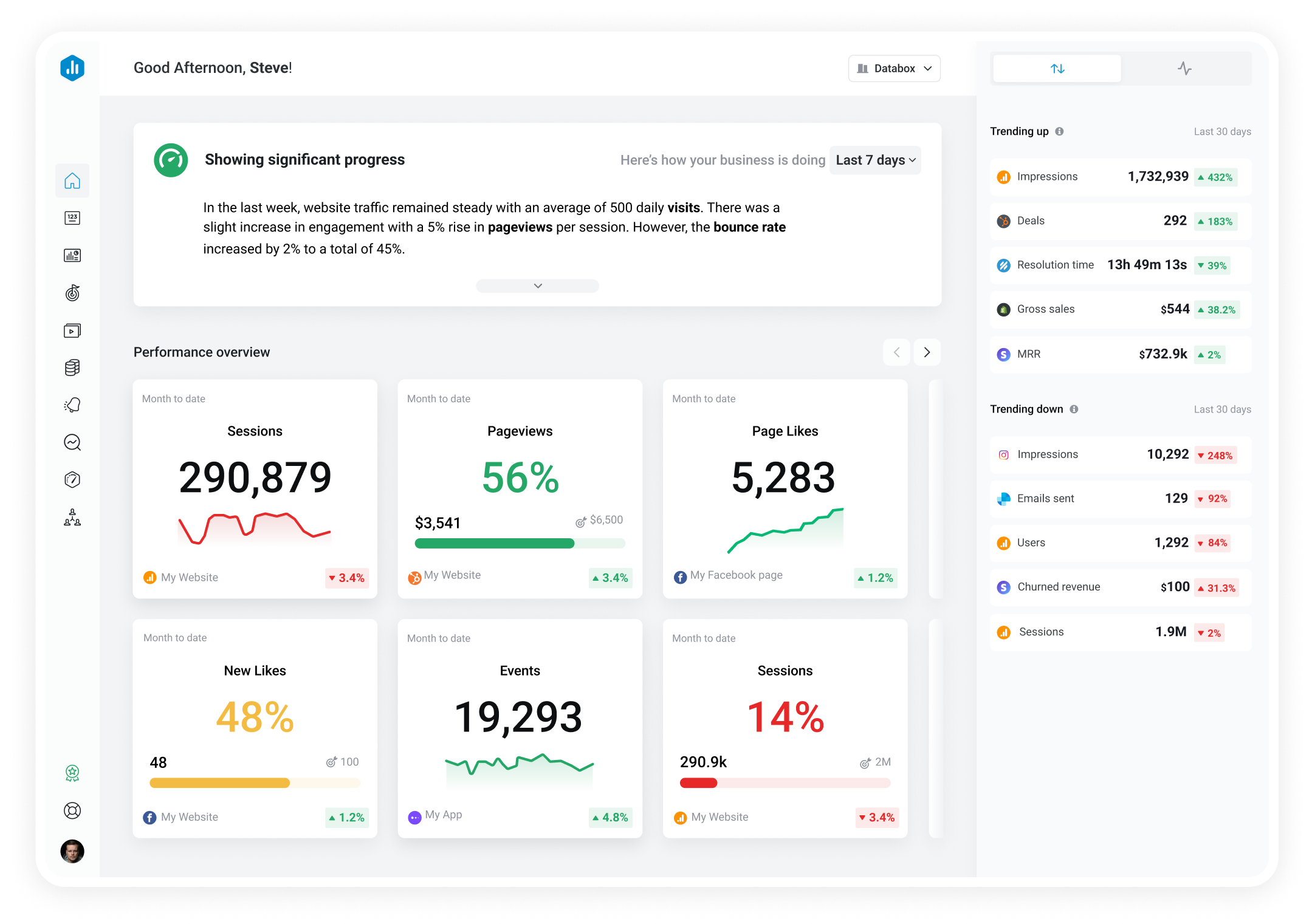Track all of your key business metrics from one screen
GET STARTED
 QuickBooks
Expenses (Cash)
QuickBooks
Expenses (Cash) Expenses (Cash) metric in QuickBooks tracks all the cash spent for business transactions or purchases made, providing an accurate reflection of the true cash flow of the company.
With Databox you can track all your metrics from various data sources in one place.

Used to show a simple Metric or to draw attention to one key number.
Databox is a business analytics software that allows you to track and visualize your most important metrics from any data source in one centralized platform.
To track Expenses (Cash) using Databox, follow these steps:
 Goals
Goals Scorecards
Scorecards Metric Digest
Metric Digest Metric Builder
Metric Builder Data Calculations
Data Calculations Performance Screen
Performance ScreenOptimize e-commerce with our WooCommerce + QuickBooks dasboad. Monitor Sales Funnel, Performance, Profit & Loss, Revenue, Expenses and Cash Flow metrics for actionable insights


Stay on top of your company’s financial health with real-time P&L, balance sheet, and cash flow insights from QuickBooks. Built for business leaders, finance teams, and stakeholders to support smarter planning and decision-making.

